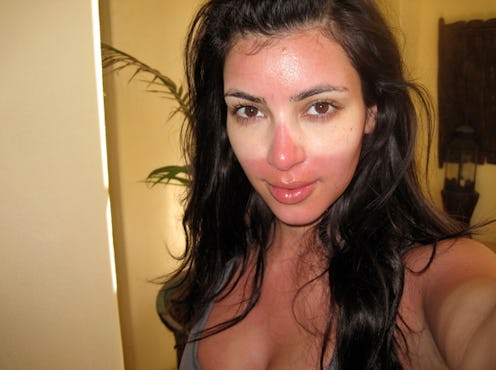Fashion
Science Says Sunburns Just Keep On Burning

Sorry to burst your skincare bubble, but it turns out that UV damage keeps happening for hours after you've left the sun. A recent Yale University study shows that cells continue to make DNA damage for hours after you've been out of the sun. So while it might seem like going indoors after a long day at the beach will prevent your skin from incurring any more damage, that is not the case.
When the sun's rays hit your skin, the UV rays trigger free-radical energy in melanin and this energy triggers DNA damage, which is a phenomenon that has never been seen in mammals before, only fireflies, so scientists were kind of geeking out about this. But since these melanin reactions are essentially harmful, does this mean that people with darker skin and more melanin are more prone to sun damage? Not exactly.
"Melanin does indeed block UV light, as we always thought. But it is also doing something harmful. This is evidently the best compromise that evolution could come up with; on balance it is better than doing nothing. Second, yellow melanin, which is present in those with blonde or red hair, is worse at blocking UV light and better at making delayed DNA damage. So the trade-off is poorer for yellow melanin,” explains Douglas E. Brash, the lead author of this study and a senior research scientist at the Yale School of Medicine.
But this isn't all bad news. Since damage continues to occur for a while after sun exposure, you can treat it with a post-sun sunscreen with antioxidants to help repair your skin before the damage is done.
Perhaps the most frightening part of this study is the finding that the second sunlight touches your skin, DNA damage occurs, specifically the kind that causes melanoma mutations. The moral of the story? Regardless of your skin tone, wear sunscreen. And wear it regularly. Not only will it keep your skin looking younger for longer, it will also help keep you healthy. It's really a win-win.
Image: Kim Kardashian/Twitter